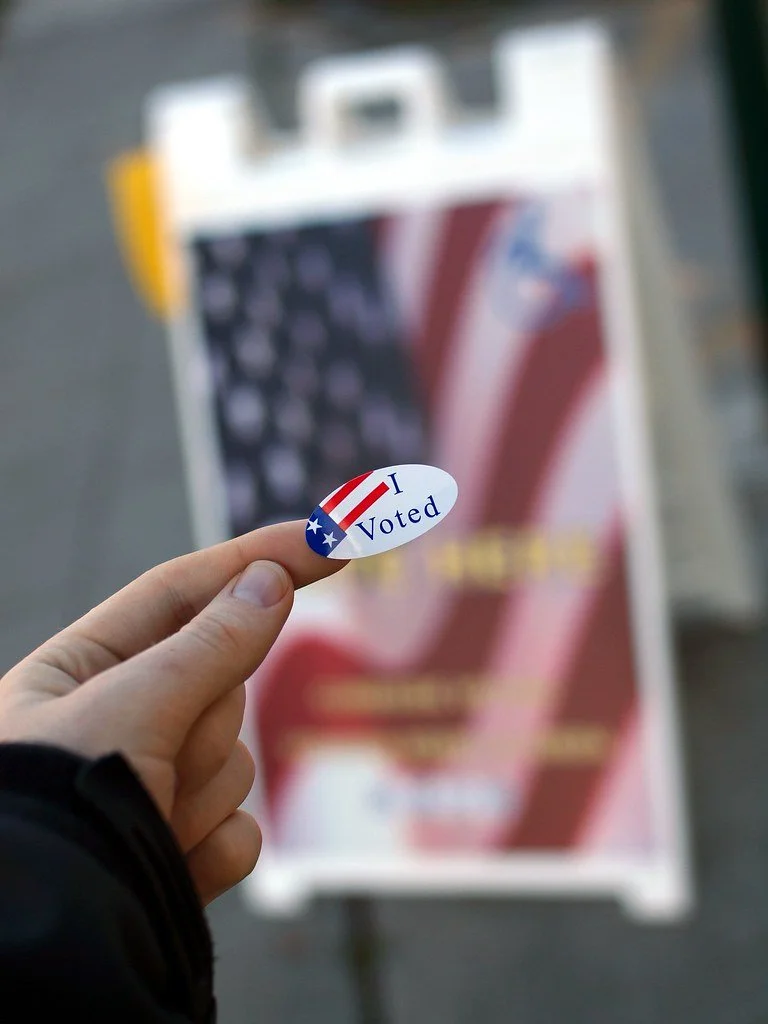A guide to making social changes through small steps.
Climate protests. Unplash
Many of us care deeply about social causes and would like to get involved in activism, but struggle to take the first step. Maybe we fear the time commitment and have other pressing responsibilities with work, family or friends. Or maybe it’s just intimidating. Here are eight ways to get started as a part-time activist. They are all relatively easy and a great way to, as Gandhi said, “be the change you want to see in the world.”
1. Commit Yourself to Learning
The simplest and most overlooked step to becoming an activist is learning. Through consuming media that promotes or educates on social causes, you can discover a cause you’re passionate about, find an activist group whose mission speaks to you, and learn about the people, animals, countries, social groups, and environment that you want to advocate for. Read nonfiction books, research online media such as journals, websites and podcasts, or even just explore social media accounts by searching through hashtags. This is the first step.
2. Donate
Realistically, economic activism is the bread and butter that allows activist groups to create change, so donating to a cause you’ve researched can make all the difference. More funding and economic investment usually means more social impact, although the relationship is not always linear. Funding keeps activists paid, operations smooth, and costs of office space covered and can also add credibility to a nonprofit's cause.
3. Volunteer
If you can’t make a monetary investment to social activist groups, make a physical investment. Many hands make light work, and volunteering is a perfect outlet that doesn’t require a large time commitment or an official position. Much like donations, the more volunteers an organization has, the greater its potential impact. Volunteering also has the unique benefit of uniting people that are passionate about the same cause, and so can create a strong sense of community around an issue.
4. Vote
Some consider voting a civic responsibility. D.H. Parks. CC BY-NC 2.0
Political theorists may argue civic responsibility, but for many activist groups voting is also a way to express satisfaction or dissent for policies that affect their missions. Voting can mean giving a voice to the causes of social activist groups. Activists vote even if they are not convinced of the power of their individual voices, because social activism derives power from a collective voice. Even a small number of votes can be the difference between starkly different policies.
5. Writing Letters of Dissent
Expressing disagreement with the policy of a company, the politics of a government official, or legislation in general, helps put public opinion in the forefront. Writing on behalf of a particular activist group or a general social action mission can better express the anguish or anger felt toward a particular policy. A letter can contribute to a general dissent toward a policy which could, then, lead to revisions in legislation and corporate actions that threaten the activists’ goals.
6. Political Activism
Find a political candidate, whether local or national, whose mission and policies align with your own beliefs and advocate for their voice with your own. Helping a political candidate share their message might involve volunteering for a voter drive, canvassing for the candidate in your neighborhood to support their campaign or increase grassroots fundraising, or conducting phone calls to personalize the policies of the candidate to their constituents. Through political activism you can promote a candidate whose policies will truly make a difference in your life, your community and beyond.
7. Passive Activism: Petitions and Social Media
Passive activism often means supporting a cause through signing online petitions or using social media to like, post or repost, hashtag, or comment on a post that advocates for social change. While critics deride this form of advocacy as the easiest and, consequently, laziest form of activism, passive activism can build exposure and boost viewership for nonprofits, activists, and candidates. And it's how many more “active” activists get their start.
8. Protests
Amnesty International’s Refugee Day Rally against Britain’s asylum policy. Lewishamdreamer. CC BY-NC 2.0
Before any part-time activist can protest, they need to find a protest relevant to their desired cause and in a not-too-distant location. You can find local protests through the social media platforms of your city’s local government and more specific organizations. The Twitter and Facebook pages of activists and nonprofits in particular can serve as the social media catalysts for protest. Finding a protest also means checking up on the websites of your favorite activist groups under an “Events” tab, where such groups typically post protest dates and locations for protests. Some local governments even have protest calendars on their websites.
Nonprofits and Activist Organizations to Donate to or Volunteer for:
Climate Change
Sustainable Harvest International: Addresses climate, biodiversity, forest and soil restoration and human health in relation to the environment
Environmental Defense Fund: Addresses climate, energy, ecosystem, ocean, and health issues in relation to the environment
Sunrise Movement: Youth political action organization whose mission is to stop climate change and create jobs
Extinction Rebellion: Global pro-environment movement that uses nonviolent civil disobedience to compel government action on climate change and environmental protection
Human Rights
International Rescue Committee: Uses donations to fund global humanitarian aid
Amnesty International: UK-based global movement to end abuses of human rights
World Central Kitchen: Provides meals on the frontlines of humanitarian, climate, and community crises
Racial Justice
National Association for the Advancement of Colored People (NAACP): Promotes civil rights and advocates for Black voices to end race-based discrimination
Black Lives Matter: A global organization dedicated to ending violence against Black people and racial injustice, and promoting the prosperity of Black communities
Women’s Issues
The Rape, Abuse, and Incest National Network: Anti-sexual violence organization that provides victim services, raises awareness about sexual violence and works to achieve justice for survivors
Malala Fund: International nonprofit that fights for girls’ education by investing in education activists and holding global leaders accountable
Global Health
Doctors Without Borders: Mostly donation-based medical humanitarian project dedicated to caring globally for communities in danger
Partners in Health: International nonprofit that partners with local governments to bring medical care to poor areas
LGBTQ+ Rights
The Trevor Project: Provides and utilizes crisis services, peer support, LGBTQ activism, research, and public education efforts to end suicide for LGBTQ youth.
Ali Forney Center: Offers services like job readiness training, support, and shelter for homeless LGBTQ in New York to protect them from the dangers of homelessness
Veteran
Wounded Warrior Project: Provides programs and services to injured veterans, including mental health care, rehabilitative care and career counseling
Su Ertekin-Taner
Su is a first year student at Columbia University majoring in creative writing. Her love for the power of words and her connection to her Turkish roots spills into her satire, flash fiction, and journalistic pieces among other genres. Su hopes to continue writing fearless journalism, untold stories, and prose inspired by her surroundings.




